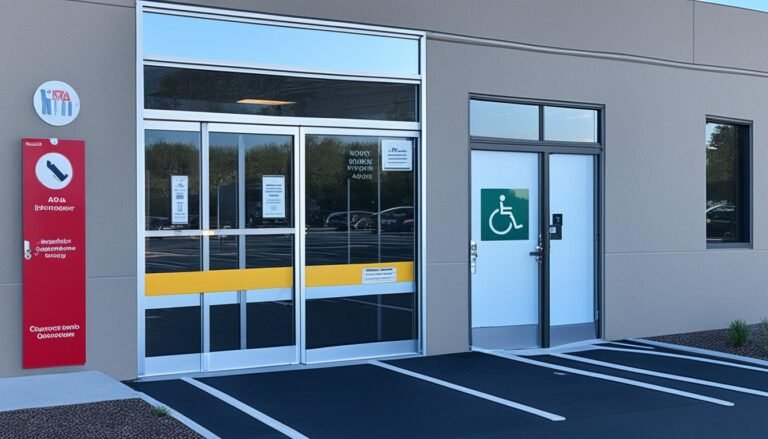Understanding the Role of Expert Witnesses in Personal Injury Cases
Expert witnesses play a crucial role in personal injury cases, providing specialized knowledge that can help clarify complex issues and strengthen a claim. While lay witnesses or eye witnesses can offer valuable insights based on their observations, expert witnesses provide professional opinions grounded in their experience and expertise. This distinction often makes expert testimony a deciding factor in personal injury lawsuits, as it helps the court understand technical aspects that lay witnesses cannot adequately explain.
Whether you’re dealing with medical, financial, or accident reconstruction experts, their input can be instrumental in achieving a favorable outcome in a personal injury case. To learn how personal injury law works, it’s essential to understand the critical differences between expert and lay witnesses, as well as when expert testimony is most effective.
What Is an Expert Witness?
An expert witness is a professional with specialized knowledge, skills, experience, or education in a particular field relevant to a personal injury case. This can include medical professionals, engineers, economists, or accident reconstruction specialists. In personal injury lawsuits, expert witnesses are called upon to offer their opinions on various aspects of the case, such as the extent of injuries, potential long-term effects, and the financial impact of the incident.
For example, a medical expert may testify about the severity of a plaintiff’s injuries and how those injuries are expected to affect their future quality of life. An economist might provide insight into lost earning capacity and the overall financial impact of the injury. These expert testimonies are invaluable because they offer objective, informed perspectives that can help the jury or judge better understand complex issues.
The Importance of Expert Witnesses in Personal Injury Cases
The testimony of expert witnesses can make or break a personal injury case. Here’s why their involvement is so important:
- Clarifying Complex Issues: Personal injury cases often involve highly technical matters, such as medical diagnoses, treatment plans, and long-term prognosis. An expert witness can break down these issues in a way that is easy for the court to understand. This is particularly helpful when the jury lacks the specialized knowledge needed to fully grasp the impact of an injury or the negligence that caused it.
- Providing Objective Analysis: Expert witnesses offer objective opinions based on facts, scientific evidence, and their professional expertise. Unlike lay witnesses, who may have a personal connection to the case, expert witnesses are seen as impartial and trustworthy. Their testimony carries significant weight in court, helping to bolster the credibility of the plaintiff’s claims.
- Supporting Financial Compensation Claims: In cases where the plaintiff seeks compensation for lost wages or diminished earning capacity, expert testimony from economists or vocational experts can be essential. These experts can calculate future financial losses and provide a detailed analysis of how the injury will affect the plaintiff’s ability to work and earn income. This type of testimony is critical in ensuring that the plaintiff receives fair compensation.
Expert Witnesses vs. Lay Witnesses: A Key Difference
While expert witnesses bring professional insights to the table, lay witnesses or eye witnesses contribute by recounting what they personally saw or experienced. Both types of testimony are valuable in personal injury cases, but they serve different purposes.
- Lay Witnesses: These individuals were present at the time of the accident or have personal knowledge of events leading up to or following the incident. They may describe how the accident happened, the conditions at the scene, or the immediate effects of the injury. While their testimony can be compelling, it is often limited to factual observations and lacks the depth of analysis provided by experts.
- Expert Witnesses: Unlike lay witnesses, experts do not have firsthand knowledge of the accident. Instead, they review evidence, documents, and case materials to offer an informed opinion. Their role is to explain complex information—such as the mechanics of an accident or the nature of a medical condition—in a way that helps the court reach an informed decision.
In some cases, the testimony of a lay witness might be sufficient, but in more complex personal injury cases, the detailed analysis provided by an expert witness can significantly strengthen the claim. For instance, when managing workers compensation claims, having an expert who can explain the long-term effects of an injury or the financial burden of lost wages can be pivotal to securing the compensation the plaintiff deserves.
Common Types of Expert Witnesses in Personal Injury Cases
Several types of expert witnesses are commonly called upon in personal injury cases. These include:
- Medical Experts: Often the most critical type of expert witness, medical professionals can provide testimony on the nature and extent of injuries, treatment plans, and long-term prognosis. Their testimony is particularly useful in cases where the severity of injuries is in dispute or where the plaintiff’s ability to recover damages hinges on proving the long-term impact of the injury.
- Accident Reconstruction Specialists: These experts analyze the mechanics of an accident and can recreate the events leading up to it. Their testimony is especially useful in car accident cases where fault is disputed, or when there are questions about how the accident occurred.
- Economic and Vocational Experts: These professionals assess the financial impact of an injury, including lost wages, future earning potential, and the cost of medical care. They provide detailed calculations that can help ensure the plaintiff receives fair compensation for both current and future financial losses.
- Workplace Safety Experts: In cases where workplace injuries are involved, safety experts can testify about industry standards and whether the employer met those standards. This type of testimony is critical in cases where legal protections in the workplace are at issue, as it helps establish whether negligence played a role in the injury.
When Is an Expert Witness Needed?
Not every personal injury case requires an expert witness. In straightforward cases where liability is clear and the injuries are minor, the testimony of lay witnesses may be sufficient. However, expert witnesses become invaluable in more complex cases, particularly those involving disputed liability, serious or long-term injuries, and significant financial claims.
If the case hinges on technical aspects—such as determining the extent of the injury or calculating future medical expenses—an expert witness can provide the necessary analysis to support the plaintiff’s claims. They offer a level of detail and professionalism that lay witnesses simply cannot match, making their testimony essential in many cases.
The role of expert witnesses in personal injury cases cannot be overstated. While lay witnesses bring personal observations to the table, expert witnesses offer specialized knowledge that can clarify complex issues and strengthen a claim. Whether it’s a medical expert explaining the long-term effects of an injury or an economist calculating lost earning potential, expert testimony provides the detailed analysis needed to support fair compensation for the plaintiff.
To learn how personal injury law works and how expert witnesses can benefit your case, consulting with legal professionals experienced in handling such claims is always a wise move. Expert witnesses provide the edge needed to navigate the complexities of personal injury lawsuits, ensuring a stronger case for the injured party.







